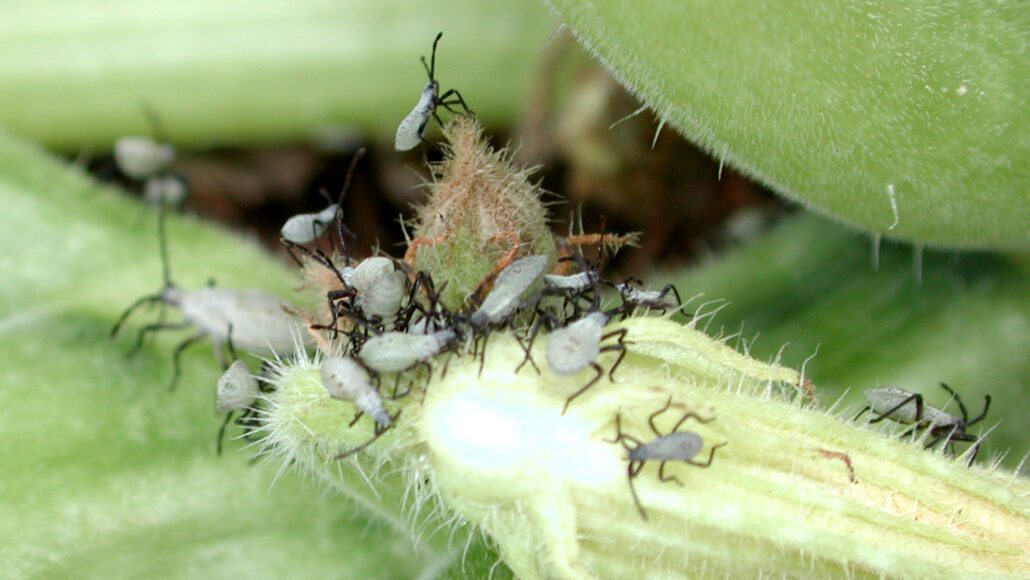Juvenile Squash Bugs Rely on Adult Feces for Crucial Microorganism

For young squash bugs, a sip full of feces can help the microbes go down.
Squash bugs (Anasa tristis) are a major agricultural pest, and a bacterial partner called Caballeronia is essential for their survival. To pick up the bacteria, fledgling squash bugs home in on adult poop in the environment, researchers report in the July 10 Current Biology.
If the nymphs don’t find the microbe, they die, says evolutionary biologist and behavioral ecologist Scott Villa of Davidson College in North Carolina. And Caballeronia is not plentiful in the environment. So having to fend for themselves is a risky strategy, Villa says. “If it’s so important, why in the heck did they not just put them on a platter for their kids?”
Many other insects do just that. Females defecate on their eggs, leaving behind essential bacteria that their young can slurp up. But it was unclear how squash bug nymphs acquired Caballeronia. Figuring it out could lead to ways to interrupt the bacterial supply chain to control the pest’s population, Villa says.
The serendipitous discovery came when Villa and colleagues caught an adult squash bug pooping on camera while working on a different study. Nymphs flocked to the feces and started feeding. When the team then gave nymphs a choice of a mouthful of saline or poop spiked with the bacteria, the bugs were intensely attracted to the feces. Of 229 recorded events, all but three involved bacteria-containing poop.
Nymphs also preferred bacteria-free poop or the bacteria alone to saline.
What’s more, the attraction may be species-specific. The insects were less successful at picking up Caballeronia from feces belonging to their close relative A. andresii, another squash bug.
Why Caballeronia is key for squash bugs is unclear, says coauthor Jason Chen, a microbial ecologist and entomologist at Emory University in Atlanta. But the bacteria probably help ensure the insects get the nutrients they need from their diet.
Our mission is to provide accurate, engaging news of science to the public. That mission has never been more important than it is today.
As a nonprofit news organization, we cannot do it without you.
Your support enables us to keep our content free and accessible to the next generation of scientists and engineers. Invest in quality science journalism by donating today.




